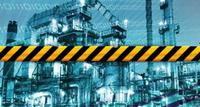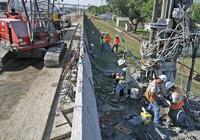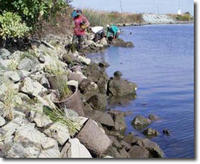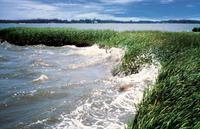-
Helping utilities predict service life of pipeline infrastructure
Scientists develop regression models to help utility companies predict the service life of wastewater pipeline infrastructure and take an active approach to pipeline replacements and maintenance
-
-
Critical flaws in SCADA give hackers edge
In an effort to improve critical cybersecurity flaws in industrial control systems, last week researchers released exploit modules that take advantage of security gaps in six major control systems, but in doing so, have made it easy for hackers to infiltrate these systems as none of them have been patched or taken offline
-
-
Infrastructure security market to see robust growth
A combination of ageing infrastructure, smart grid adoption, rising compliance and regulations, and utilities becoming a target for criminal exploitation has created a robust growth in the utility infrastructure security market
-
-
Booz Allen calls for greater critical infrastructure investment
In advance of President Obama’s State of the Union Address, defense contractor Booz Allen is urging the president to focus on critical infrastructure investment
-
-
GAO: critical infrastructure operators need more coherent regulations
A recent Government Accountability Office (GAO) report found that the bulk of U.S. critical infrastructure is inadequately protected as operators lack a coherent set of guidelines
-
-
Slowing down sea-level rise vs. reducing surface temperature change rate
Scientists say that reducing the amount of solar radiation hitting Earth (for example, by satellites that block the sun, making the Earth’s surface more reflective, or emulating the effects of volcanoes by placing aerosol particles in the upper atmosphere) would be a cheaper way to halt or reverse climate change than reducing carbon dioxide emissions
-
-
Water pumps and terrorism-related information sharing systems
With thousands of local law enforcement agencies, critical infrastructure operators, and concerned citizens reporting suspicious incidents, Homeland Security officials are inundated with data; effectively sorting through that information is a problem, as was illustrated last November by a report that a water pump at an Illinois water utility was broken by Russian hackers; the preliminary report caused panic about U.S. infrastructure vulnerability, but ultimately proved incorrect; it took more than a week for federal investigators to reach its conclusion, showing DHS ongoing problems with streamlining information sharing processes with its Fusion Centers
-
-
Stuxnet and Duqu part of assembly line: researchers

Stuxnet, the highly sophisticated piece of malicious code that was the first to cause physical damage, could just be the tip of the iceberg in a massive cyberweapon manufacturing operation; according to cybersecurity researchers at Kaspersky Labs and Symantec, Stuxnet appears to be part of a larger cybersecurity weapons program with fully operational and easily modified malicious code that can be aimed at different targets with minimal costs or effort
-
-
Digital images used to prevent bridge failures
A new/old method has been developed to assure the safety of hundreds of truss bridges across the United States; researchers have been testing the use of a thoroughly modern version of an old technique — photographic measurement or “photogrammetry” — to watch the failure of a key bridge component in exquisite detail
-
-
New Orleans flood defense system nears completion

The Army Corps of Engineers is rapidly nearing the completion of its upgrades to the massive levee and flood defense system designed to protect the greater New Orleans area from another Hurricane Katrina
-
-
ETrade cyberattack shuts down trading
Over the holiday season, Australia’s second-largest online brokering service, ANZ Bank’s ETrade was hit by a series of cyberattacks, temporarily locking out customers
-
-
Connecticut examines ways to bolster electrical grid during disasters –
Following Tropical Storm Irene and the29 October nor’easter that left thousands of homes without power across the northeast, Connecticut is considering new regulations that could bolster the power grid and improve resiliency during natural disasters
-
-
California’s flood-protection system crumbling

California has a patchwork of aging flood-protection system; it was built over the last 150 years by individuals, localities, and the state government; experts say this system, now protecting an estimated $69 billion in assets, is woefully inadequate
-
-
SF Bay wetlands losing battle against sea level rise

San Francisco Bay’s tidal marshes protect coastlines against flooding, provide nursery areas for commercial fisheries and filter pollutants from seawater and the atmosphere; these marshes may face a grave threat from sea level rise in the next century
-
-
California lawmakers work to improve utilities’ disaster preparedness
California lawmakers are considering a bill to better prepare public utilities for emergencies and disasters following a series of severe storms that left thousands without power across the state
-
- All
- Regional
- Water
- Biometrics
- Borders/Immig
- Business
- Cybersecurity
- Detection
- Disasters
- Government
- Infrastructure
- International
- Public health
- Public Safety
- Communication interoperabillity
- Emergency services
- Emergency medical services
- Fire
- First response
- IEDs
- Law Enforcement
- Law Enforcement Technology
- Military technology
- Nonlethal weapons
- Nuclear weapons
- Personal protection equipment
- Police
- Notification /alert systems
- Situational awareness
- Weapons systems
- Sci-Tech
- Sector Reports
- Surveillance
- Transportation
Advertising & Marketing: advertise@newswirepubs.com
Editorial: editor@newswirepubs.com
General: info@newswirepubs.com
2010-2011 © News Wire Publications, LLC News Wire Publications, LLC
220 Old Country Road | Suite 200 | Mineola | New York | 11501
Permissions and Policies
Editorial: editor@newswirepubs.com
General: info@newswirepubs.com
2010-2011 © News Wire Publications, LLC News Wire Publications, LLC
220 Old Country Road | Suite 200 | Mineola | New York | 11501
Permissions and Policies
